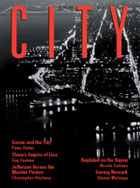 I've spent the last 7 years closely monitoring the ongoing debate over media ownership in this country and what I find most intriguing about it is the inherent schizophrenia of the media criticism emanating from the political Left. That is, although we find ourselves in the midst of unprecedented explosion of media options and diversity, critics on the Left are still spinning gloom-and-doom stories about our modern media environment and the state of deliberative democracy. But they are doing so from two radically different perspectives.
I've spent the last 7 years closely monitoring the ongoing debate over media ownership in this country and what I find most intriguing about it is the inherent schizophrenia of the media criticism emanating from the political Left. That is, although we find ourselves in the midst of unprecedented explosion of media options and diversity, critics on the Left are still spinning gloom-and-doom stories about our modern media environment and the state of deliberative democracy. But they are doing so from two radically different perspectives.
This is the subject of a new article of mine that appears in the latest issue of the City Journal entitled "The Media Cornucopia." In the essay I note that:
This media cornucopia is a wonderful development for a free society--or so you'd think. But today's media universe has fierce detractors, and nowhere more vehemently than on the left. Their criticisms seem contradictory. Some, such as Democratic congressman Dennis Kucinich, contend that real media choices, information sources included, remain scarce, hindering citizens from fully participating in a deliberative democracy. Others argue that we have too many media choices, making it hard to share common thoughts or feelings; democracy, community itself, again loses out. Both liberal views get the story disastrously wrong. If either prevails, what's shaping up to be America's Golden Age of media could be over soon.
I go on to describe these two competing schools of Leftist media criticism, which I label the "scarcity-obsessed" critics versus the "information-overload" critics. I discuss the views of the various theorists who occupy each camp of thinking and explain how they have quite successfully used these competing theories of media criticism to spin reality out of the political dialogue about these issues. In the end, I conclude that: "What unifies the two schools of leftist media criticism, beneath their apparent opposition, is pure elitism. ... Both liberal groups would love to put their thumbs on the scale and tilt the media in their preferred direction."
Anyway, if you are interested in reading the entire essay, the folks at the City Journal have posted it on their site here.